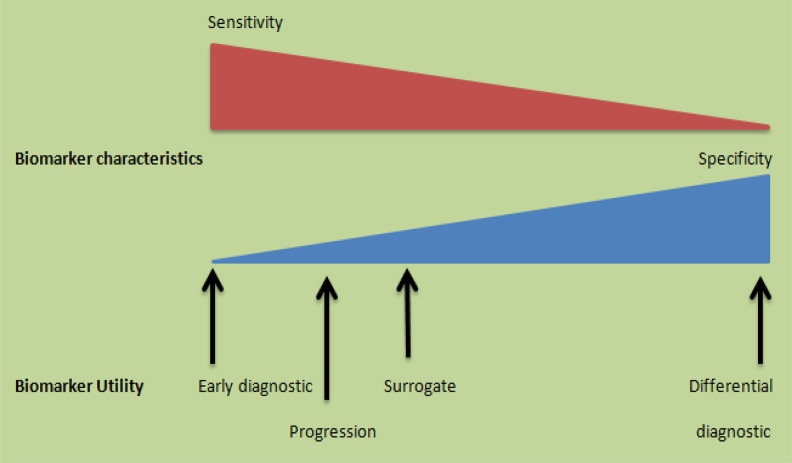Figure 1.
Different biomarkers needed to support clinical tests: The biomarkers for early diagnosis should be very accurate to recognize a patient population before the advent of cognitive symptoms. In addition, markers for differential diagnostic purposes should be very exceptional as they function to describe the different diseases that contribute to dementia. On the other hand, markers required to study disease development should be much sensitive in order to follow delicate cognitive variations during the course of clinical trials. Surrogate markers that measure the pathology of a disease should have characteristics that are the delicate balance of specificity and sensitivity.

